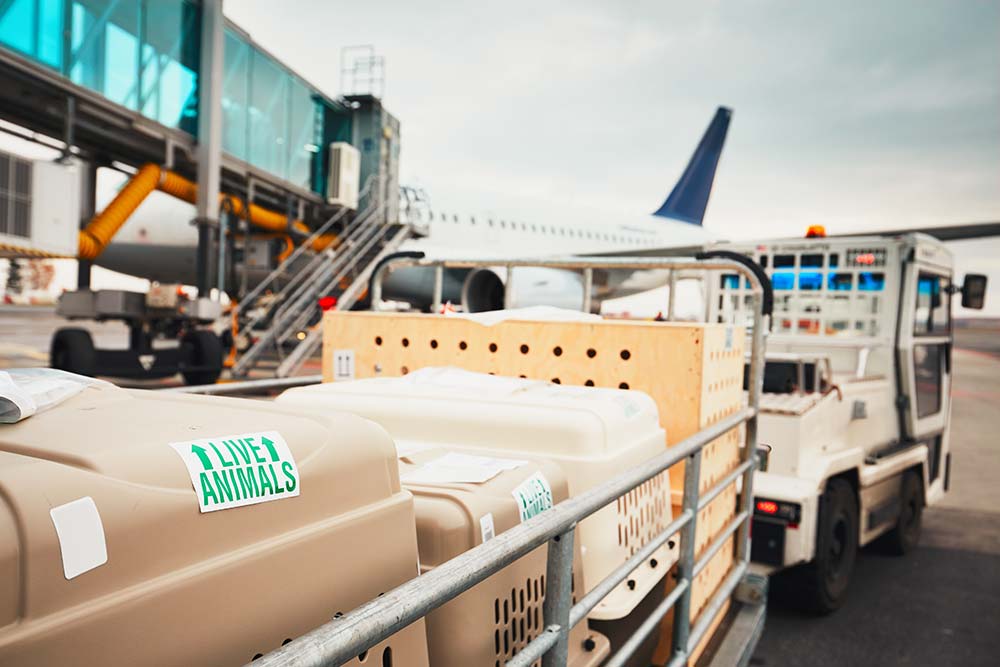A collection of insights into aspects of shipping, schooling and housing that are currently impacting the global mobility industry.
Dive in for updates/information about the ongoing Red Sea situation, the addition of VAT to private school fees in the UK, the falling cost of long-term rentals within the popular areas of Singapore, and predicted changes to immigration rules under the new UK Labour Government.

Shipping
The Red Sea, the Gulf of Aden and the Suez Canal:
SOUTH AFRICA: Some companies have begun to use the East Coast of Africa route again, passing through the Red Sea, the Gulf of Aden and the Suez Canal. Others continue to avoid the area, transiting via the South and the West Coast of Africa instead. When advising clients on the optimum route for a shipment, K2 considers the following:
- Availability of vessels
- Ability to secure capacity on these vessels
- Transit time
- Freight rate
- Canal Surcharge – Some shipping lines, are applying this surcharge reportedly in the region of USD 1,200.
THE MIDDLE EAST: K2 is seeing many clients offering assignees, especially those who are relocating with children, a larger air freight allowance to offset the longer sea freight transit times. As a result of this trend, some airlines are struggling to accommodate.
K2 is finding that securing pre-negotiated discounted rates for shipments is extremely difficult, making it necessary to use spot rates in the majority of cases. In addition, direct sailing routes, where available, are currently sitting at a high price point, and rollovers (rolling the freight over to the next scheduled departure) are not uncommon. Often, booking whatever freight is available is the only option.
To manage the situation, K2 is doing the following:
- Working with clients to give our partners the go ahead as early as possible, giving them time to source the best possible rates.
- Benchmarking moves with multiple partners to ensure that we are offering clients the best possible rates.
- Working closely with our strong network of partners to secure the most competitive rates, despite the difficulty of the situation.
- Investigating routing and transit time for each individual shipment, then communicating this to assignees well ahead of time in order to manage their expectations.

Peak Season Surcharge (PSS):
Due to the challenging market situation being further impacted by port congestion in Brazil, several shipping companies have started to apply a Peak Season Surcharge (PSS) to all cargo moving from Brazil, Argentina, Paraguay and Uruguay into the USA, Canada, Mexico, Central America, the Caribbean, the West Coast of South America and Venezuela. Some companies have gone one step further and incorporated the PSS into their freight cost. Where this has been applied we are seeing uplifts in the region of $1500 to $2000, and this is expected to remain in place until the end of the year.

Pet shipments into the USA:
Effective from 1st August 2024, all dogs entering the USA must:
- Appear healthy upon arrival
- Be at least six months old
- Be microchipped
- Come with a receipt showing that their owner has completed an online submission of the CDC Dog Import Form
Additionally, proof that a dog has been vaccinated against Rabies may be required, dependent on a) where the dog has been over the past six months, and b) where the dog was vaccinated.
K2’s pet transportation partners assess each case individually. Furthermore, they carry out a daily review of legislation to ensure that they remain up to date with any changes, and they support assignees with paperwork requirements.
If relocating a dog from a high risk country, K2 advises that the preparation process begins two months prior to the desired transportation date.

Schooling
Private schools in the UK:
VAT at the standard rate of 20% will be added to private school fees from 1 January 2025, in order to fund 6,500 new teachers in England. The tax applies to all payments for the January 2025 term made from 29 July 2024 onwards.
Some private schools may decide to put their fees up by more than 20%. According to the Institute for Fiscal Studies (IFS), the average cost of private school fees has risen by 20% since 2010, and by 55% since 2003 – neither percentage includes VAT. Clients are starting to review their policies for schooling to ensure that costs remain balanced.
Despite the significant increase in fees, the proportion of children being privately educated between 2003 and the present day has not fallen.

Housing
The new Renters Rights Bill in the UK:
The Renters Rights Bill replaces the Renters Reform Bill, which was originally proposed by the Conservative Government with the intention of creating a fairer private rental sector. It was announced to Parliament in May 2023 and received its second reading in October of the same year, when plans to delay the abolishment of the Section 21 notices were introduced. The process was halted when the General Election was announced in May 2024.
During the King’s Speech on 17th July 2024, following the appointment of the new Labour Government, the Renters Rights Bill was announced. The King spoke of the Government providing greater rights and protections to people renting their homes – this includes ending no fault evictions and reforming grounds for possession.
The majority of the recommended reforms in the original white paper remain in the new Bill. These reforms include:
- Abolishing Section 21: Introducing clear and expanded possession grounds to allow landlords to reclaim their properties when necessary.
- Enhancing tenants’ rights and protections: Empowering tenants to challenge rent increases and ending rental bidding wars.
- Allowing pets in rental properties: Landlords must reasonably consider tenant requests to keep pets. They can demand insurance to protect against any damage caused by the pets.
- Introducing a Decent Homes Standard for the PRS: Implementing this standard for the Private Rental Sector (PRS) to ensure quality living conditions.
- Enforcing ‘Awaab’s Law’: Setting clear legal expectations and deadlines for landlords to meet their obligations.
- Creating a digital database for the PRS: Consolidating information for landlords, tenants and councils.
- Establishing a new ombudsman service: Offering quick, affordable and binding dispute resolutions between landlords and tenants.
- Prohibiting discrimination: Making it illegal for landlords to discriminate against tenants because they receive Benefits or have children.
- Strengthening local council enforcement powers: Enabling councils to identify, penalize and eliminate rogue landlords more effectively.

The Affordable Rent Act in the Netherlands:
Implemented on 1st July 2024, the Affordable Rent Act is intended to regulate rental prices in the middle and social housing sectors in the Netherlands. Within these sectors, properties are now graded using a points system, which determines how much rent a landlord can charge. Properties graded at 186 points or less can cost no more than 1,157.95 euros per month; properties graded at above 186 points remain unregulated. Landlords must inform their tenants of their property’s points total by January 2025.
For tenants currently living in rental accommodation, if their property is graded at 143 points or less, then they should be paying a maximum of 880 euros per month in rent. Those who are paying more than this may be entitled to a lower rent and should discuss this with their landlord. For a property graded at over 143 points, the rental price detailed in the contract remains valid. However, if tenants have been in a property for less than six months and they are paying more than the points system stipulates, then they can ask their landlord for a rent reduction.
The new Act will be particularly beneficial to those living in the most expensive Dutch cities, e.g. Amsterdam. In these cities, landlords will no longer be able to get away with charging exorbitant rents for small apartments.
Temporary accommodation and long-term rentals in Singapore:
- Short- and long-term rental costs show that Singapore remains the destination of choice in APAC.
- Recently, the average cost for long-term rentals within popular areas of the city has been falling.
- Currently, availability of temporary accommodation during the Singapore Grand Prix weekend from 19 – 22 September remains robust. However, some providers are applying surcharges during this period.
Keep an eye on…
The security situation in Lebanon:
The security situation in Lebanon is highly volatile at the moment, with the potential to deteriorate quickly. The country is in the midst of a conflict between Israel, Lebanese Hizballah and other non-state actors, who are engaging in mortar and artillery exchanges as well as airstrikes. So far, HHG services have not been greatly impacted: there may be delays in obtaining clearance, but bookings are still being accepted. DSP services may be suspended if the situation deteriorates: currently, K2 Consultants are checking the availability of all services on a case-by-case basis before proceeding with bookings. Given the risk of a sudden escalation in the situation, K2 is managing assignees’ expectations with regard to timeframes and the potential suspension of services: “in the event of deterioration in the political or security situation, commercial routes out of Lebanon could be severely disrupted or cancelled at short notice, and roads across the country could be closed.” (GOV.UK)
Changes following the appointment of a new Labour Government in the UK:
The Labour Party Manifesto promised a fair immigration system and pledged to “reform the points-based immigration system so that it is fair and properly managed, with appropriate restrictions on visas, and by linking immigration and skills policy”.
ACTIONS TAKEN/PLANNED:
- The Rwanda Deportation Plan brought in by the previous Conservative Government has been overturned.
- New plans to deal with illegal immigrants crossing the English Channel in boats have been introduced.
- The Government has confirmed that they intend to address worker shortages in key areas such as IT, Engineering and Construction.
- The Government plans to reform the points-based immigration system, thus reducing migration.
ACTIONS LIKELY:
- The new Government will likely commit to the previous Government’s pledge to reduce its dependency on overseas workers to relieve skills shortages in the UK. It is likely that they will do this by renewing the previous Government’s focus on training and developing the current workforce.

